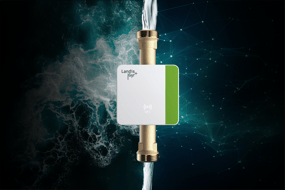 Manufacturers and suppliers of technology used in people’s homes are well versed in compliance and ensuring that their products meet legal safety requirements. Unfortunately, although BSI introduced BS 7856, its latest safety standard for smart meters in 2017, compliance with this is not mandatory. There are however some compelling reasons why we should all strive for the very highest standards of safety and use the latest BS 7856 standard, rather than earlier withdrawn versions, as the benchmark.
Manufacturers and suppliers of technology used in people’s homes are well versed in compliance and ensuring that their products meet legal safety requirements. Unfortunately, although BSI introduced BS 7856, its latest safety standard for smart meters in 2017, compliance with this is not mandatory. There are however some compelling reasons why we should all strive for the very highest standards of safety and use the latest BS 7856 standard, rather than earlier withdrawn versions, as the benchmark.
Our Senior Quality Systems Engineer, Roland Hill, is an internationally recognised expert in the field of safety engineering who liaises with multiple safety bodies to inform and influence necessary changes that drive the safest standards for installers and users. This means we are often ahead of the curve when it comes to adopting new standards such as BS 7856 and all our SMETS2 smart meters have complied with this since 2017 when the standard was updated.
We all have a responsibility to ensure our products are as safe as they can be, and to work together as an industry to protect those who use them. The lack of legal requirement does however leave some suppliers exposed to potential risks which although small, would be high impact in the case of an accident. The two areas where safety is improved in the 2017 standard are:
1. The 2017 standard requires a lower internal temperature inside the smart meter housing.
2. The internal switch, triggered frequently by those on prepayment tariffs, may naturally degrade over time. If not properly managed this can lead to damage and more heat across the switch.
The duty of care that energy suppliers have to customers extends to ensuring the highest possible standards of safety, particularly as smart meters that conform to BS 7856:2017 exist and have been installed widely. Inadvertently supplying and installing smart meters that adhere to an earlier, withdrawn version of the standard could be interpreted as insufficient mitigation of risk. While the risks are unquestionably low, the impact of a device failure could be severe and the reputational and litigious consequences could be extremely damaging.
Get in touch with us if you're interested to learn more about the safety standards for smart meters. We're happy to partner with you an help raise the standards for the industry for the safety and health of everyone.






